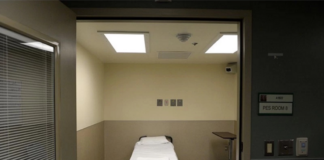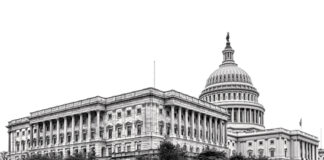Tag: mental illness and violence
Reporting the COVID Crisis at Psychiatric Hospitals: A Missed Opportunity
In its coverage of the impact of COVID on psychiatric hospitals, the media missed opportunities to challenge stereotypes and interrogate problems with current carceral approaches to mental health treatment.
Does Stranger Mean Danger?
Are those diagnosed with “mental illness” more dangerous than other people? Or have we evolved to sense danger from anything that we believe to be different or "strange"?
The Cost of Being Psychotic in America
People living with psychosis—people like me—are dying because we are being discriminated against by people who’d rather see us hurt than attempt to work with us and give us the decency and respect that should be accorded us as a human right. And nobody deserves to be assaulted or shot after they’ve reached out for help.
The Psychiatric Narrative & The Boston Globe: Violence, Force, & Derogatory...
The Boston Globe recently published an atrocious opinion piece, “Massachusetts law meant to protect people with mental illness may make them sicker.” Though framed as an attempt to shed light on a need for better mental health laws, the piece insults those of us of who have been labeled with mental health diagnoses.
New Study Dispels Myth About “Mental Illness” and Violence
From Pacific Standard: "A new study published in JAMA Psychiatry dispels that relationship. Study authors Jeffrey Swanson and Charles Belden found that, not only is the connection shoddy—the 44-plus million American adults with a...
The Helping Room
Every culture has its share of individuals who break down in bewilderment. People who hallucinate, behave beyond norms, seek to die, think in strange ways.
The Mental Health Reform Act of 2016 (SB 2680) Would Be...
There is indeed a crisis in the mental health business. The crisis derives from psychiatry's spurious and self-serving premise that all significant problems of thinking, feeling, and/or behaving are brain illnesses that are correctable by psychiatric drugs.
Dear Boston Globe, Part IV: A Taste of Your Own Medicine
The Boston Globe paints a picture (in the vivid way that they so love to do) that pins the system’s decline primarily on budgetary issues, but there is more than one way for a system to be ‘broken.’ In fact, where the Globe goes most wrong in their latest piece, ‘Community Care,’ is in their failure to adequately recognize that the system has always been broken in one way or another in this country.
A Diluted Murphy Bill Clears the House and Goes to the...
Organized psychiatry, committed irrevocably and wholeheartedly to drug pushing and to their corrupt and corrupting relationship with pharma, simply will not countenance the fact that their primary product is fundamentally flawed and destructive. So they hire a PR company; they fund and lobby politicians; they parrot slogans; and they encourage one another to ever-increasing heights of self-congratulation. But they will not commission a definitive study to clarify and assess the scale of this problem once and for all. And the reason for this inaction is because they know that it would be bad for business. It would "cause a lot of people to stop taking their medications."
The Murphy Bill, HR 2646 — a Heinous Piece of Legislation...
The National Coalition for Mental Health Recovery is calling upon all people of like minds, who care about individuals who need mental health services, to ACT. It is urgent. Please call your representative in the House of Representatives to vigorously oppose HR 2646 on Tuesday, July 5, 2016. And, call your Senator to insist that the Senate reject any amendments or changes to mental health legislation from the House by Friday, July 8, 2016. For more information about this Call to Action, please click here.
A CALL TO ACTION: The Murphy Bill Passed the E&C Committee but...
As you read this, people with lived experience all around the country are mobilizing to educate our federal legislators about why the Helping Families in Mental Health Crisis Act (H.R. 2646) should be defeated. Education is the key. As executive director of the National Coalition for Mental Health Recovery, I am issuing a call to action. We need to ramp up our efforts before this backward piece of legislation becomes law. We need to get in touch with our legislators and their staffs, contact the media, make some noise! We need to exercise the proverbial strength in numbers. And we need all of this now!
No, It’s Not Because He Was ‘Mentally Ill’: Why Tragedy Struck...
49 people died in a club in Orlando, Florida at the hands of a man who is now dead, too. In only a few hours time, he destined himself to be forever made infamous as one of an increasingly long line of 'shooters' that have sent our nation on a desperate search for who or what to blame. I never met this particular 'shooter,' but in my teens I did meet one. Here's how that went.
The Presidential Primary & Forced Outpatient Psych Drugs
This month the candidates for President compete in our State of Oregon, so this is a very good time to ask the following question: “How do you stand on the controversy of forced outpatient mental health drugs?” This is my 40th year working as an advocate for people labeled “disabled,” and I know that the topic of involuntary psychiatry can be a little complicated for people. After all, if one of our beloved family members becomes irrationally self-destructive, we can become desperate for help. However, this is such an important topic that we need to go deeper than just a bumper-sticker answer.
“People with Psychiatric Disabilities: Our Modern-Day Scapegoats”
For the North Carolina Law Review, Katie Rose Guest Pryal writes, that “ a psychiatric diagnosis, or involuntary civil commitment to a psychiatric ward—which is...
Needle In a Haystack: Identifying the Next School Shooter Before He...
A total of one hundred and fifty-eight school-related shootings since Columbine, carried out by one hundred and ninety-nine shooters, have resulted in two hundred and twenty-four deaths and two hundred and eighty-eight injuries; a rate of one shooting a month during that almost sixteen year period. Eighty-five of these shootings have occurred since Newtown, i.e; in little less than three years, doubling the rate of shootings to one every two weeks. A ritualized public and political response to the shootings has evolved, particularly in the wake of the mass murders, which always attract the most media attention: shock, outrage and a demand for action to prevent a recurrence. Who are these teenagers who are doing the shootings and why? How are they getting their hands on the powerful weapons they’re using? Where are the stricter gun controls needed to deny the shooters access to these weapons?
















